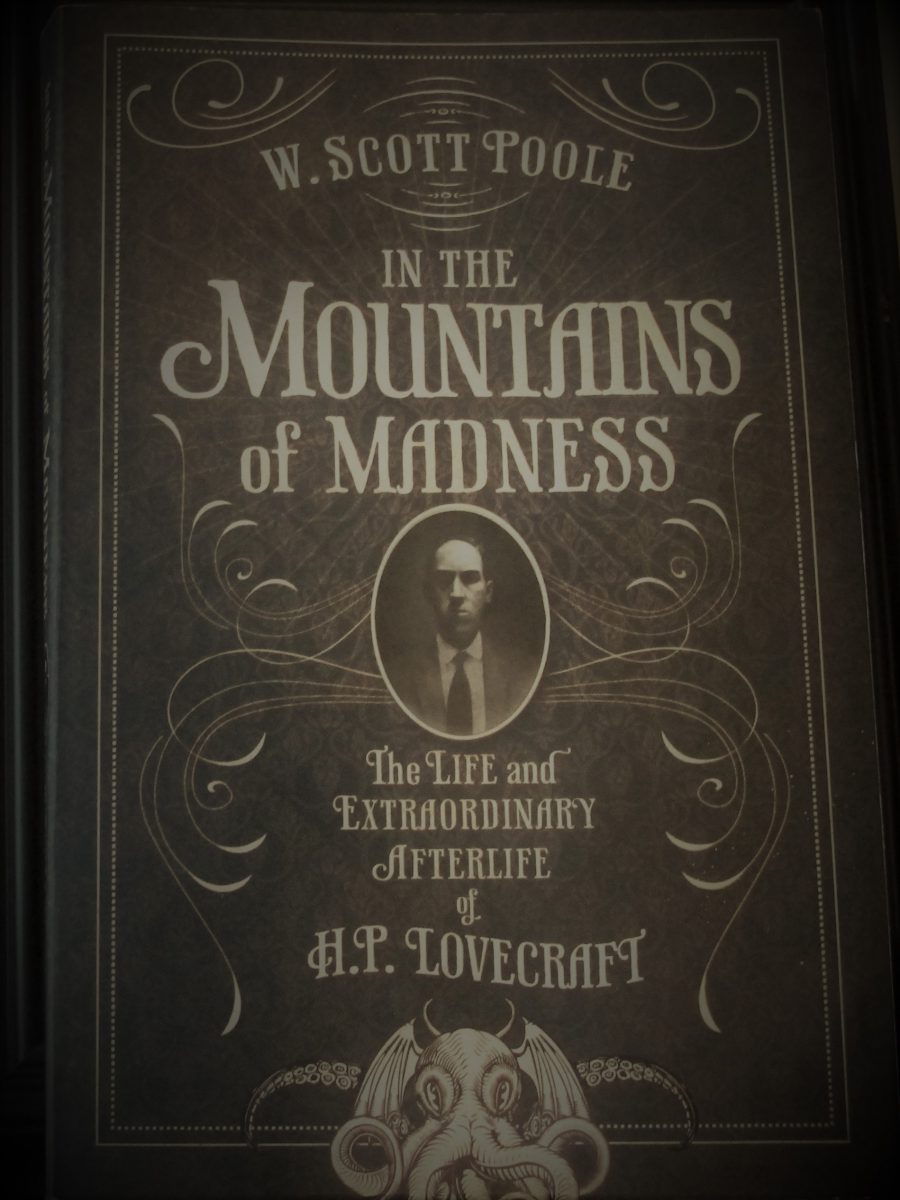Author: W. Scott Poole
Book: In the Mountains of Madness: The Life and Extraordinary Afterlife of H.P. Lovecraft
Release date: 13 September 2016
Publisher: Soft Skull Press
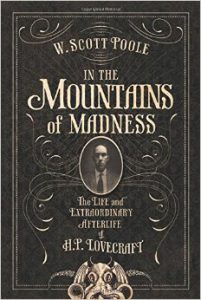 H.P. Lovecraft can be found everywhere these days. His stories are constantly being reprinted. His ideas are used in films, games and musical compositions. I found my way to his work through one such project, the Lovecraft Gods series on Cryo Chamber. Seeking to understand the meanings of his system of Gods, I began to delve into Lovecraft. But, with so many stories, many of which only barely touch on any of the structural order of the Gods, the task proved to be daunting. This is when I came upon In the Mountains of Madness.
H.P. Lovecraft can be found everywhere these days. His stories are constantly being reprinted. His ideas are used in films, games and musical compositions. I found my way to his work through one such project, the Lovecraft Gods series on Cryo Chamber. Seeking to understand the meanings of his system of Gods, I began to delve into Lovecraft. But, with so many stories, many of which only barely touch on any of the structural order of the Gods, the task proved to be daunting. This is when I came upon In the Mountains of Madness.
In the Mountains of Madness is a 300 page book which serves as a historically grounded biography as well as a means of connecting Lovecraft‘s legacy to current trends in the entertainment industry. W. Scott Poole is certainly not the first author to set out on this task. Where his telling becomes unique is in its attention to fact over myth or prejudice.
Most books in the market on Lovecraft serve one of two purposes: to glorify his life and legacy, or to provide a highly critical antithesis to his cult followers’ works. Authors like S.T. Joshi and August Derleth have dedicated their lives to furthering the influence of H.P. Lovecraft, and to covering up his less desirable traits in the process. Their opposition most significantly focuses on his deeply held racist beliefs. One of the victories of the opposition was the removing of the “Howies”, the award busts of Lovecraft, from The World Fantasy Convention.
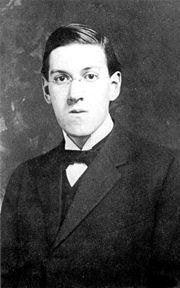
Lovecraft in 1915, age 25
Poole manages to walk the thin line between these two camps. Throughout In the Mountians of Madness he consistently shows both positive and negative aspects of Lovecraft as a person. He is able to achieve this goal because of his focus on historical accuracy above all other considerations. This has led S.T. Joshi to voice some of his criticism against the project, even while contributing to its accuracy by way of an interview conducted by Poole. Poole has the necessary nuance to admit that S.T. Joshi is the most dedicated and accurate of Lovecraft scholars, while simultaneously attempting to debunk some of Joshi‘s long-held beliefs/findings on Lovecraft.
Poole leaves himself open to lavishing Lovecraft with the deepest praise where due. Speaking of a correspondence between Lovecraft and Robert Howard (creator of Conan the Barbarian among other tales of swords and sorcery), Poole states, “Lovecraft writes to Howard in an early 1930 letter that ‘the basis of all true cosmic horror is violation of the order of nature and the profoundest violations are the least concrete and describable.’ Perhaps no better short description of the chills Lovecraft administered to his readers has been written.” Yet moments later Poole states that, “Unfortunately, most of their letters are unrelievedly boring. Both are contemptuous of immigrants and African Americans and pour into their missives venomous indignation about the ‘mongrel hordes’ allegedly swamping the United States.”
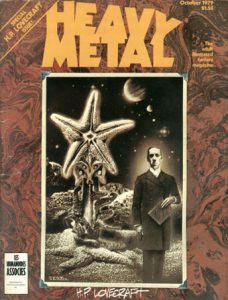
Oct ’79 cover of Heavy Metal Magazine
The question of Lovecraft‘s racist leanings is revisited often throughout In the Mountains of Madness. Poole argues against the excuse of Lovecraft‘s position being a product of his time, by showing evidence of some of his closest friends attempting to change his views on these topics. Yet, Poole simultaneously admits that since Lovecraft had very close friends which held these opposing views, he clearly wasn’t given to shouting down those with beliefs contrary to his own. In conclusion, he admits that the topic is very complicated and both sides of the argument have valid points, while neither camp will ever fully admit to the complexity of the matter.
Poole speaks in detail about the women of Lovecraft‘s life, from his mother and aunts to his Jewish wife of a short-lived marriage. Speaking of his wife, we are shown a perfect example of the complexity of his racist leanings. The fact that he was able to marry a Jewish woman and still hold derogatory views about her heritage is very telling of these complexities.
Poole convincingly explains how it was unlikely that Lovecraft‘s mother played such a negative role in his life contrary to many previous biographers. Pointing at numerous documented events throughout Lovecraft‘s history, he shows how Lovecraft‘s mother, through allowing her son to indulge all of his unusual interests, gave him the perfect foundation for becoming the revolutionary author which he is now remembered to be.
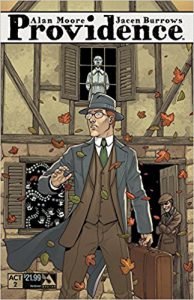
Providence, Moore
As the book draws near its close, Poole gives us a brilliantly presented overview of the most recent happenings related to Lovecraft. Poole speaks about Providence, a new graphic novel series by Alan Moore which focuses on a character who is very much like H.P. Lovecraft and explains how Moore has managed to capture the essence of the man behind the books, with all his flaws and short-comings. Poole then goes on to document a vast and international list of stories in which Lovecraft himself is the main character, leaving readers with a huge catalog of books and comics to track down, if one so desires.
Poole‘s attention to minute details, and his ability to objectively analyze Lovecraft‘s life events, gives readers the means to accept Lovecraft for his achievements as well as his flaws. Then, he gives an informed overview of the legacy of the man, through all the adaptations of his works into various entertainment media. So, in these roughly 300 pages, there is a great deal of important information for readers new to the life and writings of Lovecraft. Yet, there is also some much needed criticism of the years worth of analyses of Lovecraft as a person, giving well-read fans plenty of new information to analyze. At a relatively cheap price and having just been released in 2016, Poole‘s In the Mountains of Madness should be a must-read book for anyone and everyone with any interest in H.P. Lovecraft.
Written by: Michael Barnett

